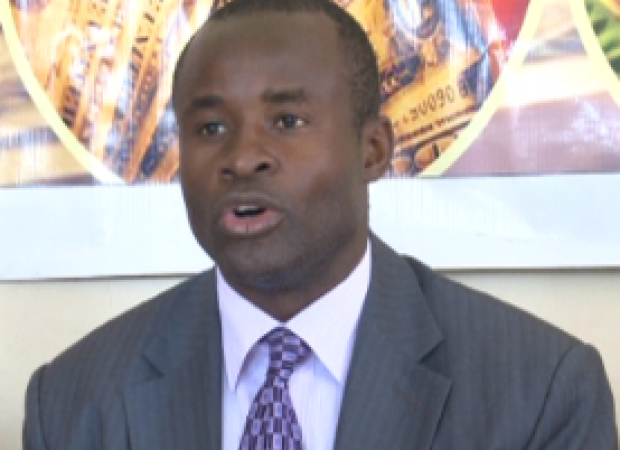When Temba comes to town

Tichaona Zindoga
On January 22, Zanu-PF legislator Cde Joseph Chinotimba clashed with his Hurungwe East counterpart Temba Mliswa during a party caucus in Harare.Cde Chinotimba accused Cde Mliswa of failing to support fellow party legislators in parliamentary debates.
In particular, he castigated Cde Mliswa, who is the party’s chairman for Mashonaland West Province, for stating that it was strange that Government mourned about sanctions and yet it bought vehicles from countries that imposed the same embargo on Zimbabwe.
Cde Mliswa had also pointed out that it would make better political and economic sense to support the local Willowvale Mazda Motor Industries plant.
In short, Temba Mliswa had come to town and he was being heard.
In previous years, and may he forgive this writer for saying so, Cde Mliswa was known more for being a rabble rouser of sorts.
His image as a businessman, sports development enthusiast and aspiring politician was often tainted by other activities.
At one point, he spent the better part of a year in and out of the courts and remand prison battling criminal allegations.
That has been changing recently. Firstly, with his election to Parliament, then his rise to the helm of Zanu-PF’s structures in Mashonaland West (which we need not say is President Mugabe’s home province), and now with his pointed contributions in the National Assembly.
Given the robust debate that he is giving in Parliament, especially this year, it is clear that Cde Mliswa is trying to cut out a different kind of politician for the House.
Traditionally, Zimbabwe’s legislators have not been engaging in robust debates and asking tough questions of the members of the Executive.
Interestingly, it is Cde Chinotimba who appeared to open the way for Zanu-PF legislators to ask their colleagues seconded to Government some hard questions.
They have been content with being “yes” people who are seemingly afraid to ruffle feathers of “shefs” checking those in authority, perhaps out of fear that they will be labelled “sellouts” for doing the job that the people sent them to do in Parliament.
And now Cde Mliswa has brought a new welcome dimension to parliamentary debate and his contributions lately — whatever his motives and background — point to a trajectory that if pursued will not only strengthen the hand of Parliament as a watchdog and pillar of the State, but also lead to greater focus on national development issues.
Take his challenge on Tuesday, that Cabinet ministers should disclose the nature of their businesses and how they got millions of dollars to establish them when the economy was under-performing.
The general consensus is that he had in mind former Mines and Mining Development Minister Dr Obert Mpofu (now Transport Minister), who bought the then Zimbabwe Allied Banking Group in 2012 for US$22,8 million to become the major shareholder in what is now Allied Bank.
Dr Mpofu acquired majority stake in the bank through his family-owned investment vehicle, Trebo and Khays.
Dr Mpofu is variously claimed to be the owner of a vast business empire which includes huge property holdings. Some sections of society have remarked at the sheer size of his investments in Bulawayo and Victoria Falls.
This should necessarily not be a matter about Dr Mpofu per se, but all the ministers and other top Government and political officials.
A sincere and far reaching probe should be undertaken to establish who owns what and how and when they got the same.
There is much suspicion that most of the ventures and lifestyles being led were acquired and are being maintained fraudulently, corruptly and shadily.
Surely, it should be in the interests of those suspected of foul play to come clean and show the country that they made their wealth through blood, sweat and tears and not illegal shortcuts, bribes and outright theft.
No country in the world, Zimbabwe included, cannot afford to have a mafia as its leadership, and any well-meaning politician must come clean.
Mliswa suggests that ministers intending to venture into full-time business should resign from Government.
It is a valid point, to a large extent.
This is so because it is easy for ministers to negate and neglect their duties and principles as public servants when they have their business interests to think about.
Further, it is very feasible that they can get tempted to influence Government processes to suit their huge businesses, to assist industry colleagues or to “recapitalise” their ventures. Abuse of office and public resources is the outcome.
Cde Mliswa is saying the right things at the right time.
At the beginning of the year he said Zanu-PF Mashonaland West province would recall errant National Assembly members and councillors who failed to implement programmes in line with the Zimbabwe Agenda for Sustainable Socio-Economic Transformation (Zim-Asset), the economic blueprint to guide economic revival from 2013 to 2018 as per the party’s winning election manifesto.
He said: “Our MPs and councillors should know that the moment they are no longer serving the interests of the people who elected them and the party, we won’t hesitate to recall them.”
People will be waiting to see how this pans out. It is to be hoped that he will honour his word.
Indeed, performance and delivery should be the watchwords and even in Parliament where legislators have had the sickening habit of warming and doing all sorts of things to the august seats without contributing to the country.
It should not be as business as usual. Another critical aspect will be looking at the merits of each case and discussing issues rather than persons.
It is quite easy for MPs to abuse their parliamentary privileges and cast aspersions on individuals and commercial entities that they either dislike, or to further personal interests.
Parliamentarians the world over like talking — and there are a lot of privileges for it — but they may tend to want to be saucy, irrelevant and conspiring.
It is in this vein that National Assembly Speaker Cde Jacob Mudenda recently called MPs to order.
Issues such as those that Cde Mliswa is bringing to the fore need rigorous debate and should not be tainted by abuse of privileges.
The current exposition of corruption behooves rigorous, non-partisan debate.
Corruption is a social and economic ill that at the end of the day gnaws at the country’s edges and into its core with the poorest being hardest hit.
These hardest hit are the people who vote the parliamentarians into office. The public gets to benefit from cleaner business and ethical and political practices.
When legislators question, as Cde Mliswa recently did on Green Fuel; procedural, legal and technical issues should inform engagements while corrective measures should take place where there are irregularities.
Zanu-PF legislators, especially, must disabuse themselves of the notion that asking hard questions from the “shefs” in the executive is “selling out”.
They may be from the ruling party but they are elected to check the excesses of the “shefs” and bring to light whatever comes from the people. The people that elected them expect these hard questions.
“Heated” debates must not necessarily be a preserve for inter-political questions but for cross-cutting issues too.
That is why there is a gaping need for more Cde Temba Mliswas in Parliament today.










Comments